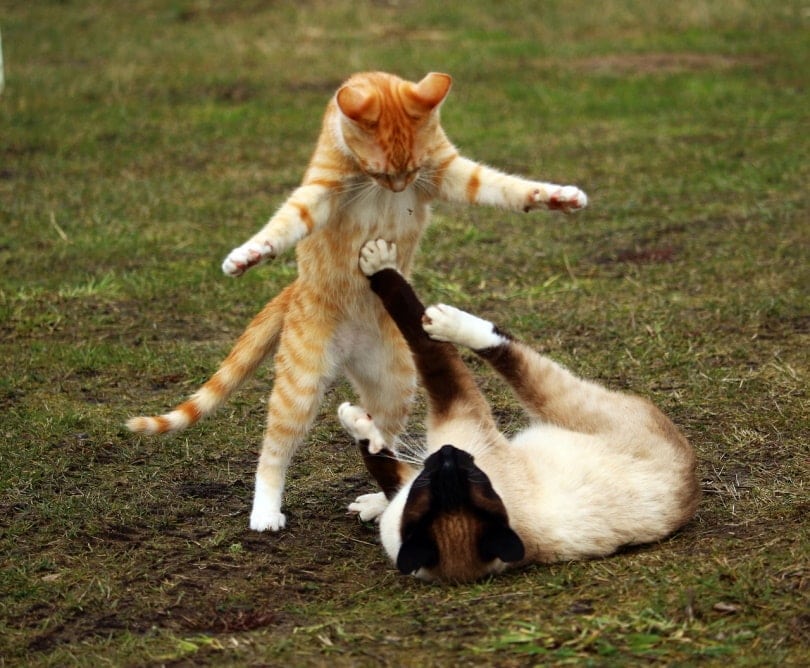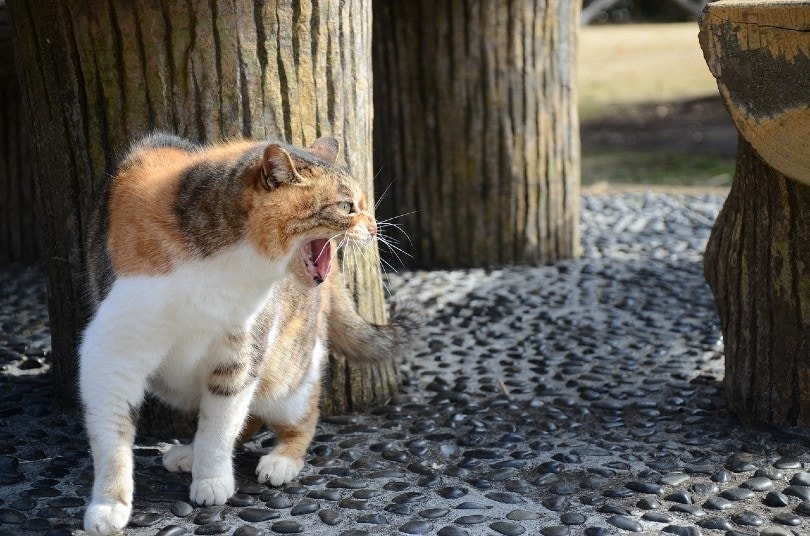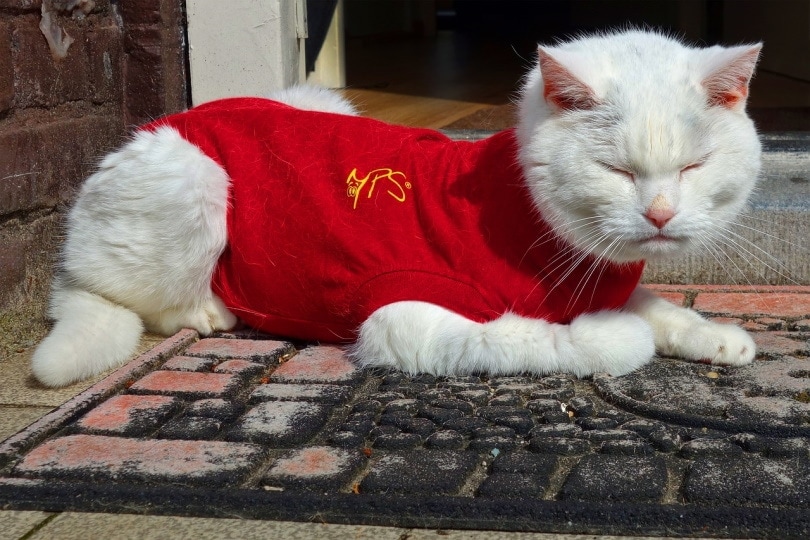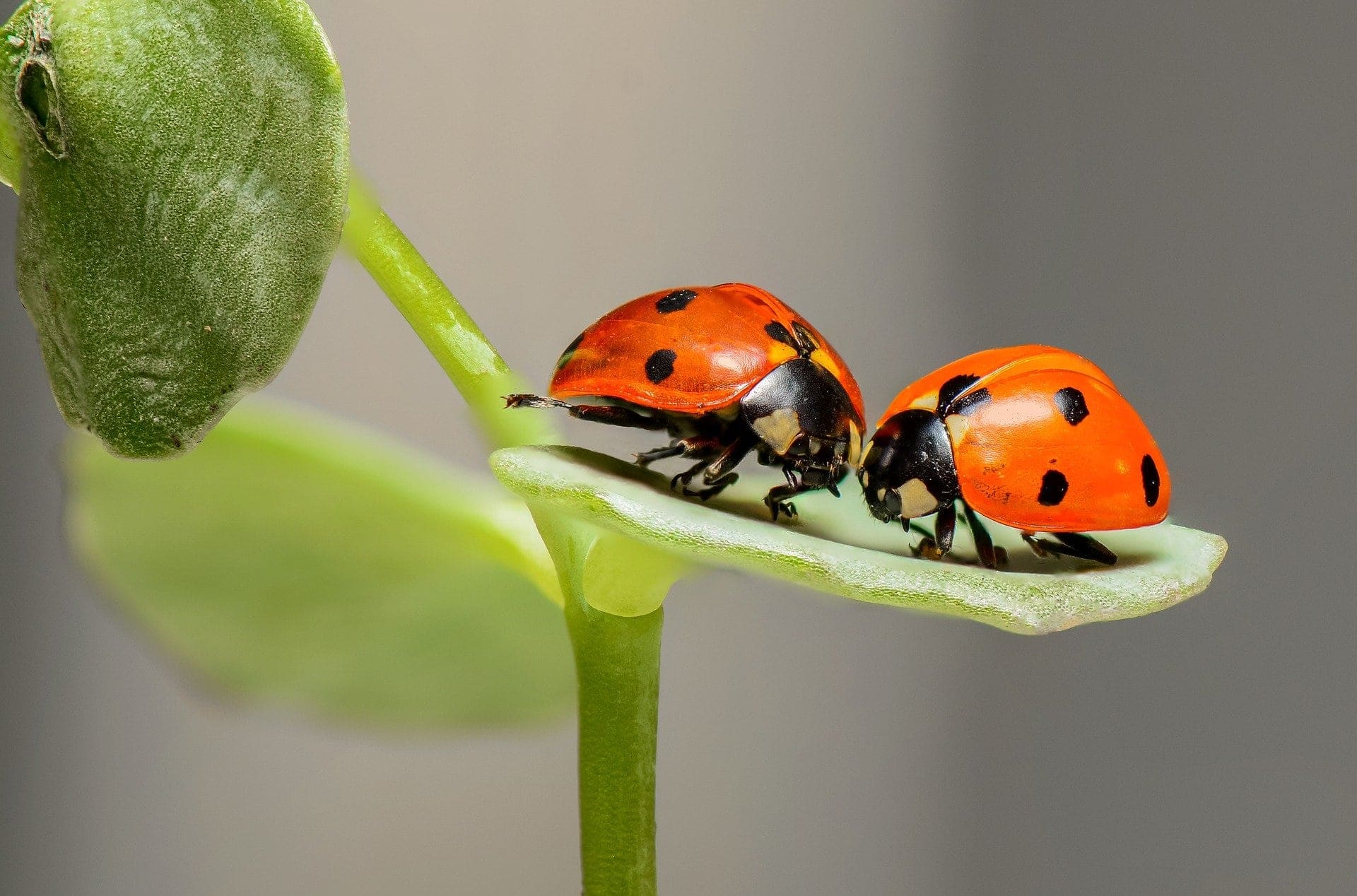Do Cats Hiss When They Are Playing? Vet-Approved Facts
By Lorre Luther
Updated on

Like most humans who love cats, you’re probably enchanted by the jumping and tackling that happy felines display when playing with humans and other cats. From time to time, you may have noticed your favorite feline adding a spectacular hiss to the mix, which might have led you to wonder, do cats normally hiss when they’re playing, or is this an indication that something different is going on? Cat’s normally don’t hiss when they’re engaged in friendly play. If your pet starts making a distinctive hissing noise, it’s a sign that they’ve become frustrated, and the interaction has moved towards aggression.
Are There Other Signs That Indicate My Cat Is Fighting Instead of Playing?
It can be difficult to tell if two cats are fighting or playing. Cats involved in play fighting pounce on each other, chase one another, bat at tails, and use their paws to swat. The signs that determine whether cats are fighting or playing can be pretty subtle. Puffing up their fur, folding their ears, and raising their tails are sure-fire but easy-to-miss clues.
Cats that feel threatened usually try to appear bigger to convince other animals to back off and puff up the fur on their backs and tails to look bigger. Angry or fighting cats will usually lay their ears back. If your cat is playing and having a good time, their ears will be relaxed and upright like they are when they’re alert and chasing you down to “encourage” you to hand over a favorite treat! Fighting cats try to create space between themselves and their opponent. Look for a crouched position with slightly more weight distributed on your cat’s hind legs.
Also, most domestic cats don’t aggressively show their teeth when they’re just playing. They may take a quick light bite or two of their playmate, but the action won’t be preceded by teeth-baring or hissing and will be a quick strike not intended to harm. If you see any of these signs while your cat is hissing, it’s fair to assume things have gotten out of hand, and it might be time for you to intervene.
What Should I Do If I Think My Cat Is Really Angry and About to Attack Me?
Back away slowly. Cats that display signs such as barred teeth and puffed-up fur are essentially telling you or the other animal that’s frightening it that they’ve had enough and it’s time to back off. Think of it this way, if your pet wanted to attack you, they would. Leave your feline companion alone for a while to let them calm down, and everything should be fine.

What Should I Do if My Cat is Getting Ready to Attack Another Cat or Dog?
If your cat is in the middle of a fight with another animal or getting ready to attack, the first thing you must determine is how serious the situation is. You might not need to intervene if you see play between two kittens that briefly turns a bit more aggressive than one kitten can tolerate or enjoy. Most cats will recognize the signs their playmate is unhappy and back off on their own.
If one cat is bullying another by preventing them from getting to the litter box or eating, a multi-pronged approach will work best. You’ll need to step in to end the fight and make changes to your cats’ living environment to reduce the potential for conflict in the future. Have sufficient litter boxes on hand, at least one per cat plus an extra one, and avoid free feeding. Try serving your cats’ meals in separate locations or under your supervision to minimize food bullying.
If two housemates still get into a scuffle, try distracting them by making a loud noise, clapping your hands, and loudly saying “NO!” or slamming a door.
Alternatively, if your indoor cat has somehow gotten outside and is in the middle of a stand-off or fight with a neighborhood cat, you need to intervene. The safest way to do so is often with nerves of steel and a thick blanket. Throw the blanket over your pet, pick them up, hold them close to your body so they can’t squirm or hurt you.
Never try to break up a fight or touch an agitated cat without a thick barrier like a blanket to protect yourself from your pet’s teeth and claws. Cats in these situations are on high alert and will often attack well-meaning humans who attempt to intervene right before or during an active fight.
Why Does My Cat Hiss at Their Toys?
Cats often hiss at their toys, particularly ones with fur or feathers, because it’s a natural outgrowth of how they use play to practice hunting. This is particularly true when your cat is playing with a toy that encourages your feline friend to “go on the hunt.” Let your furry friend enjoy their conquest and ensure they have plenty of time to settle down after they get worked up with hunting-inspired play before you try to handle them.
Featured Image Credit: rihaij, Pixabay














